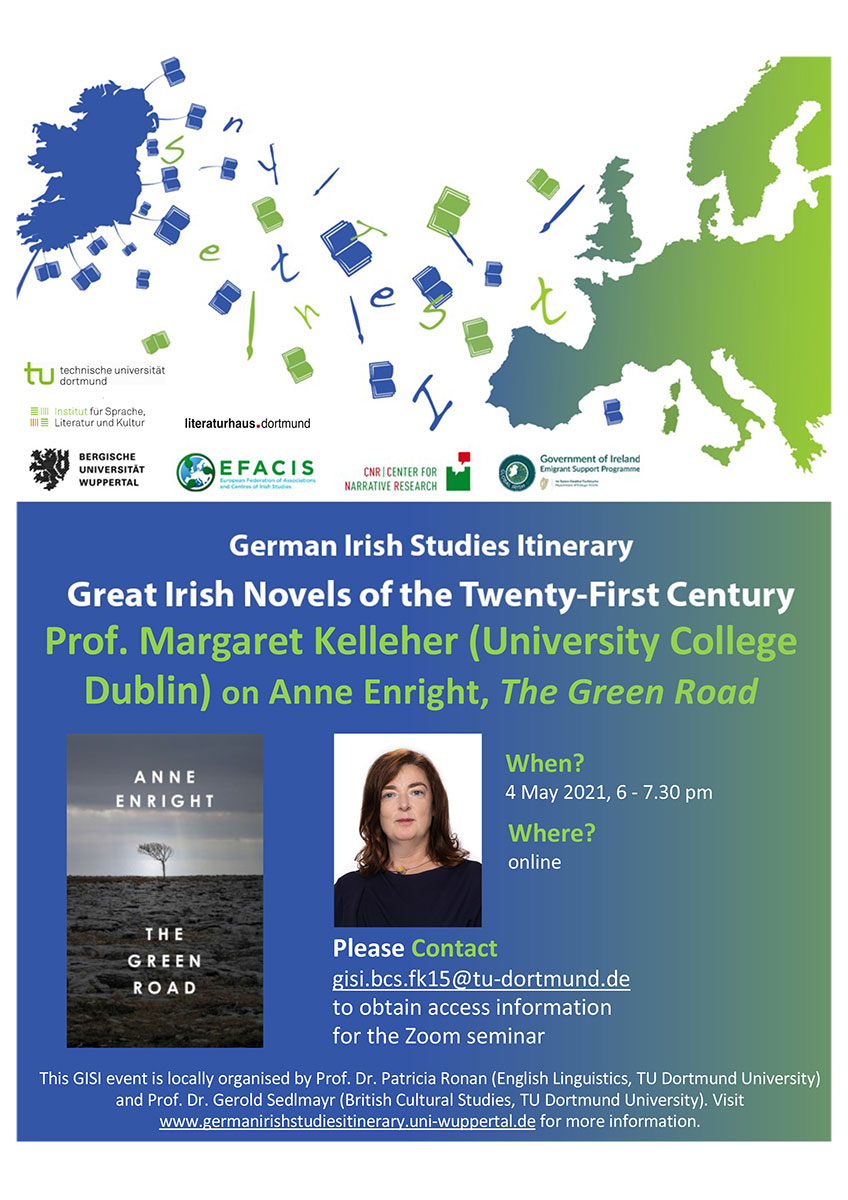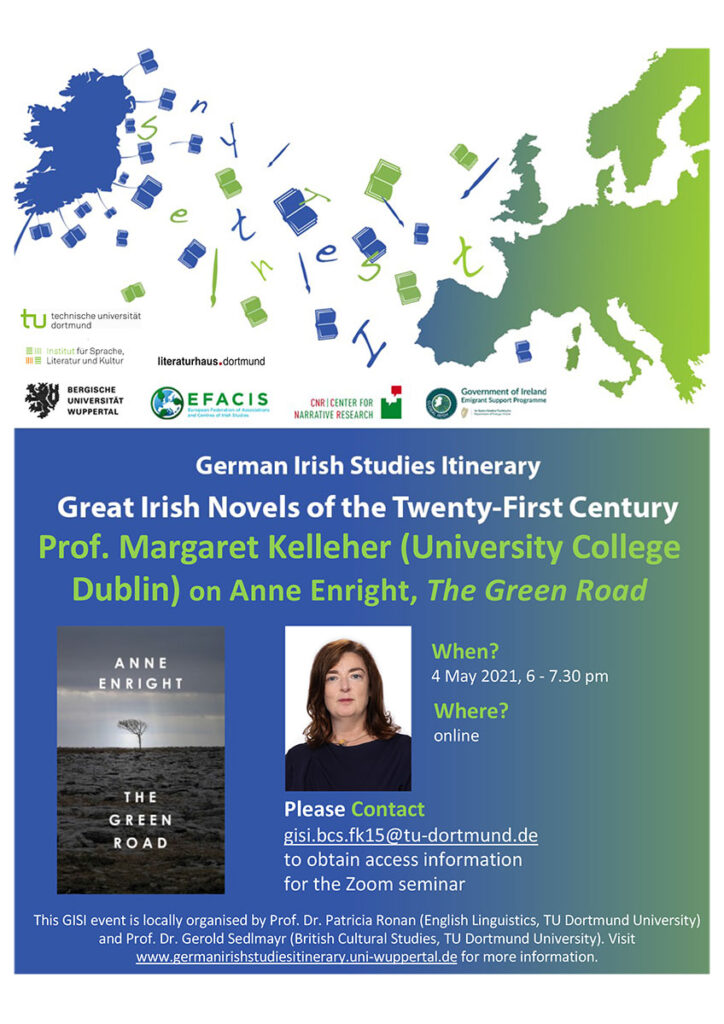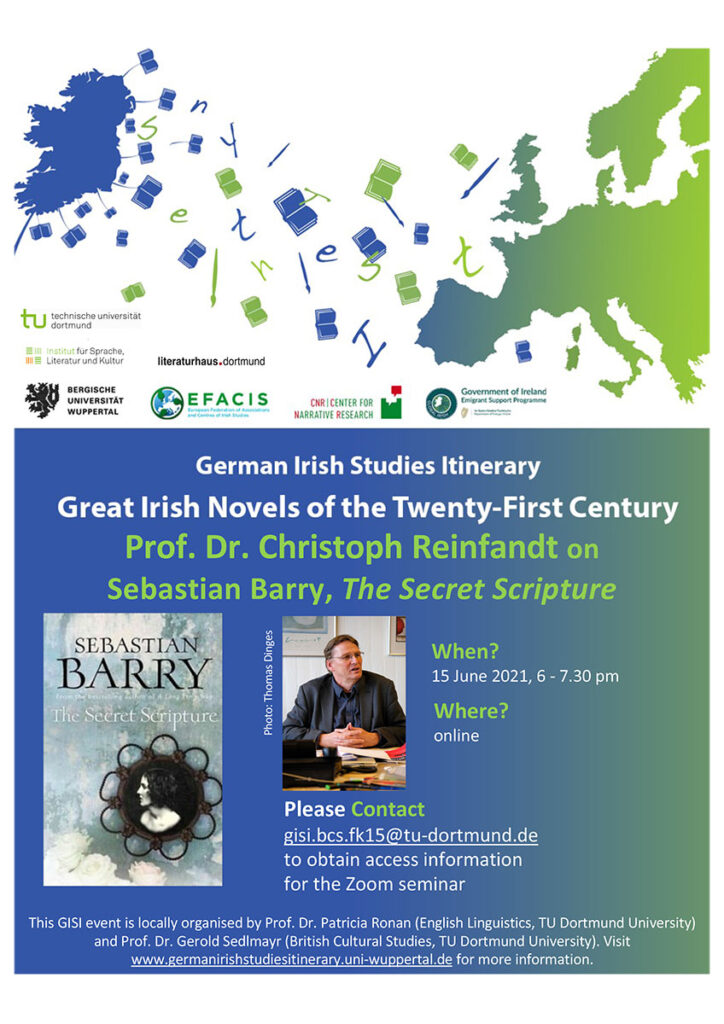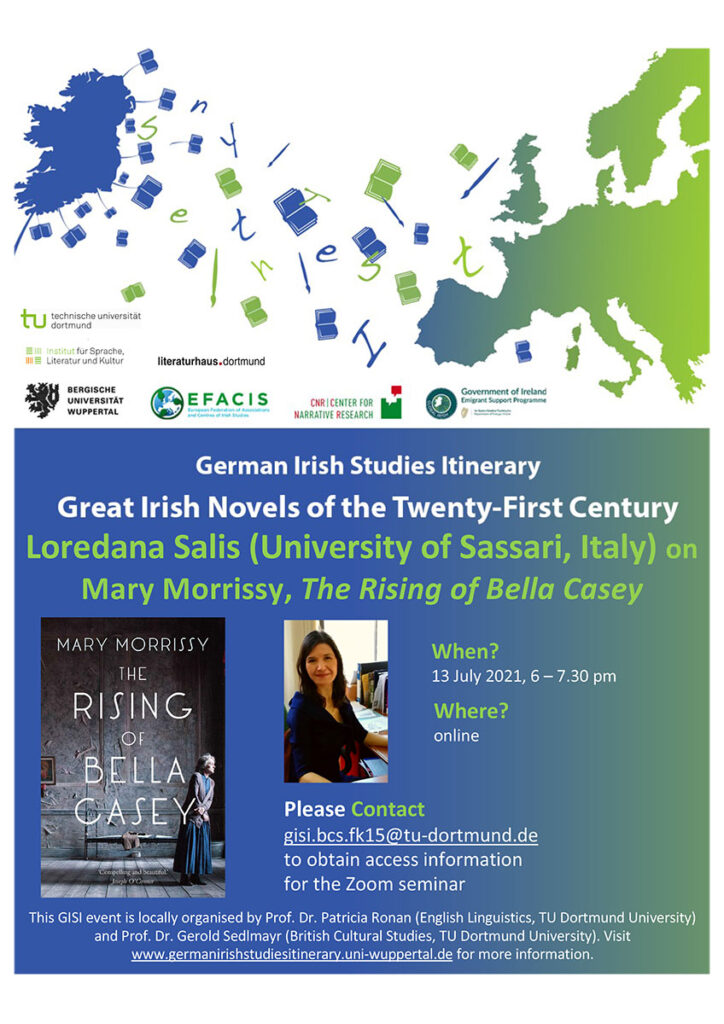In cooperation with EFACIS (European Federation of Associations and Centres of Irish Studies) and the Government of Ireland, the Institut für Sprache, Literatur und Kultur (ISLK) at TU Dortmund University and the Literaturhaus Dortmund proudly present three lectures as part of the project “German Irish Studies Itinerary” (GISI).
All guest lectures (in English) will take place online and are for free.
In order to receive the Zoom link, please write an email to: gisi.bcs.fk15@tu-dortmund.de
In their lectures, Irish studies experts will talk about three outstanding contemporary Irish novels:
1) Margaret Kelleher (University College Dublin):
Lecture on Anne Enright, The Green Road
4 May 2021, 6-7.30 p.m.
Abstract:
“I am sorry. I cannot invite you home for Christmas because I am Irish and my family is mad.” This lecture on Anne Enright’s The Green Road (2015) will explore the relationship of place and character in a novel whose locations include New York, Mali, Toronto, suburban Dublin and the Atlantic coast. It will also examine the novel’s deployment and subversion of traditional depictions of the Irish family, motherhood and sibling relations.
2) Christoph Reinfandt (University of Tübingen)
Lecture on Sebastian Barry, The Secret Scripture
15 June 2021, 6-7.30 p.m.
Abstract:
Sebastian Barry’s The Secret Scripture showcases the experiential dimension of twentieth-century Irish history in exemplary fashion. In setting the secret private ruminations of its female heroine against the attempts of her psychiatrist to piece together her life and her personality from the official record, the novel asks uncomfortable questions about power, gender, reliability and truth. In The Secret Scripture, the reflexivity of historiographic metafiction joins forces with the power of Irish storytelling traditions.
3) Loredana Salos (University of Sassari, Sardinia, Italy)
Lecture on Mary Morrissy, The Rising of Bella Casey
13 July 2021, 6-7.30 p.m.
Abstract:
Mary Morrissy’s The Rising of Bella Casey is a historical novel written and published in 2013 but set about a hundred years earlier, when Ireland was preparing to wage war against the British Empire and proclaim its independence. The story opens on Easter Monday, day 1 of the 1916 Insurrection (chapter I), and ends on New Year’s Day, in 1918, the day when Bella Beaver (née Isabella O’Casey) dies a victim of the Spanish Flu (chapter 24). The linearity and cyclicity of the timeline are disrupted almost immediately on the page as images of the past and of the narrative future break its flow to reveal Bella’s thoughts and troubled life story. Morrissy adopts a literary subgenre that allows her to reconstruct the untold story of her protagonist against the backdrop of Ireland’s contested history at the time of its foundation, in 1916, as a nation free of its colonial yoke. That was also the time of WWI and of the terrible pandemic that caused more deaths than the conflict itself. Bella’s rising (out of violence, from oblivion, against patriarchal silence) is recounted vis à vis a country and its people’s rising from a contested and traumatic past, from defective memory, partial recollections, violent omissions and oblivion. Today, our reading of it sheds light on the place of memory and on our place in remembering, forgetting and forgiving the past. This talk focuses on Morrissy’s engagement with individual and collective memory, between fact and fiction, and explores the value of creative writing in relation to agency, with the benefit of hindsight.
We are very much looking forward to welcoming you to these special events.
Prof. Dr. Patricia Ronan (English Linguistics)
Prof. Dr. Gerold Sedlmayr (British Cultural Studies)




